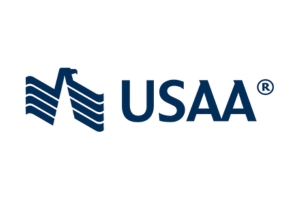How To File a Claim With Nationwide Homeowners Insurance
Learn how to file a claim with Nationwide homeowners insurance in (current_year). This article provides step-by-step guidance on navigating the claims process, ensuring you receive the coverage you deserve. Don't miss out on this essential information!
Read more Secured with SHA-256 Encryption





Save Money by Comparing Insurance Quotes
Compare Free Home Insurance Quotes Instantly




Table of Contents
Table of Contents


Insurance Content Managing Editor
Daniel S. Young began his professional career as chief editor of The Chanticleer, a Jacksonville State University newspaper. He also contributed to The Anniston Star, a local newspaper in Alabama. Daniel holds a BA in Communication and is pursuing an MA in Journalism & Media Studies at the University of Alabama. With a strong desire to help others protect their investments, Daniel has writt...
Daniel S. Young


Licensed Insurance Producer
Dani Best has been a licensed insurance producer for nearly 10 years. Dani began her insurance career in a sales role with State Farm in 2014. During her time in sales, she graduated with her Bachelors in Psychology from Capella University and is currently earning her Masters in Marriage and Family Therapy. Since 2014, Dani has held and maintains licenses in Life, Disability, Property, and Casualt...
Dani Best
Updated September 2024
Filing a claim with Nationwide Homeowners Insurance can feel overwhelming, especially when you’re dealing with the stress of property damage. However, understanding the process and knowing what to expect can make the experience much smoother. In this article, we’ll break down the steps involved in filing a claim with Nationwide and offer useful tips to help you navigate the process with confidence.
Understanding Your Nationwide Homeowners Insurance Policy
Before delving into the claims process, it’s crucial to have a clear understanding of your Nationwide Homeowners Insurance policy. Knowing what is covered and what is not will help manage your expectations when it comes to filing a claim.
When it comes to protecting your home and personal property, Nationwide Homeowners Insurance offers a comprehensive coverage package. Not only does it provide coverage for the structure of your home, but it also extends its protection to your personal belongings. So whether it’s damage caused by fire, theft, or even natural disasters, you can have peace of mind knowing that your policy has got you covered.
But it’s not just the physical aspects of your property that are protected. Nationwide Homeowners Insurance also offers liability protection, which can be incredibly valuable in today’s litigious society. This means that if someone gets injured on your property and decides to sue you, your policy can help cover the legal expenses and any potential settlement or judgment.
Additionally, if your home becomes uninhabitable due to a covered loss, Nationwide Homeowners Insurance provides additional living expenses coverage. This means that if you need to stay in a hotel or rent another place while your home is being repaired or rebuilt, your policy can help cover those costs. It’s a comforting thought to know that even in the face of adversity, you won’t have to worry about the financial burden of finding temporary accommodation.
Key Features of Nationwide Homeowners Insurance
Nationwide Homeowners Insurance policies typically provide coverage for the structure of your home, personal property, liability protection, and additional living expenses if your home becomes uninhabitable due to a covered loss.
Understanding these key features will help you know which aspects of your home and property are protected under your policy.
When it comes to the structure of your home, Nationwide Homeowners Insurance covers not only the physical building but also any attached structures such as garages, sheds, or fences. This means that if any of these structures are damaged or destroyed, the cost of repairs or rebuilding can be covered by your policy.
As for personal property, your policy can help replace or repair your belongings in case of damage or theft. From furniture and electronics to clothing and jewelry, your personal items are safeguarded by your insurance. It’s important to take inventory of your possessions and keep a record of their value to ensure you have adequate coverage.
Liability protection is another key feature of Nationwide Homeowners Insurance. This coverage extends beyond your property and can help protect you financially if you are found responsible for causing bodily injury or property damage to someone else. Whether it’s a slip and fall accident or a dog bite incident, your policy can help cover the medical expenses, legal fees, and potential settlements or judgments.
Lastly, the additional living expenses coverage provided by Nationwide Homeowners Insurance ensures that you won’t be left stranded if your home becomes uninhabitable. Whether it’s due to a fire, severe storm, or any other covered loss, your policy can help cover the costs of temporary accommodation, meals, and other necessary expenses until your home is restored.
Reading and Understanding Your Policy
Take the time to read through your Nationwide Homeowners Insurance policy thoroughly. Pay attention to coverage limits, deductibles, and exclusions. If there’s anything you don’t understand, don’t hesitate to reach out to your insurance agent for clarification. Being familiar with your policy will enable you to file a claim more effectively.
Understanding the terms and conditions of your policy is essential to ensuring that you have the right coverage for your needs. It’s important to know the limits of your coverage, as well as any deductibles you may be responsible for in the event of a claim. Familiarize yourself with the exclusions, which are specific situations or circumstances that are not covered by your policy. By being aware of these details, you can avoid any surprises or misunderstandings when it comes time to file a claim.
If you have any questions or concerns about your policy, don’t hesitate to reach out to your insurance agent. They are there to help you understand the intricacies of your coverage and assist you in making informed decisions. Remember, being well-informed about your Nationwide Homeowners Insurance policy is the first step towards protecting your home and your peace of mind.
Free Home Insurance Comparison
Compare Quotes From Top Companies and Save
Secured with SHA-256 Encryption
Preparing to File a Claim
When it comes to filing a claim, preparation is key. By taking the necessary steps beforehand, you can streamline the process and avoid unnecessary delays.
Preparing to file a claim involves more than just contacting your insurance provider. It requires careful consideration and attention to detail. This is because the success of your claim and the amount of compensation you receive may depend on how well you prepare and present your case.
One crucial aspect of preparing to file a claim is understanding the timeline for doing so. If your property has suffered damage, it’s essential to file a claim as soon as possible. Contact Nationwide as soon as you’re aware of the damage to begin the process promptly. Delaying the claim could complicate matters and even result in a denial. Therefore, it is crucial to act swiftly and efficiently.
When to File a Claim
If you are unsure about the appropriate time to file a claim, consider the nature of the damage. Some damages may require immediate attention, such as those caused by natural disasters or accidents. In such cases, it is crucial to contact your insurance provider as soon as possible.
However, for other types of damages, it may be necessary to assess the situation and gather relevant information before filing a claim. This is especially true if the damage is not immediately apparent or if the cause is unclear. In these situations, it is advisable to document the damage and gather the necessary evidence before initiating the claims process.
Remember, the sooner you file your claim, the sooner you can begin the process of recovery and receive the compensation you deserve.
Gathering Necessary Documentation
Before contacting Nationwide, gather all the necessary documentation related to the property damage. This may include photographs of the damage, repair estimates, and any other relevant information. Having this documentation ready will expedite the claims process and demonstrate the extent of the damage to Nationwide.
When gathering documentation, it is essential to be thorough and organized. Take clear and detailed photographs of the damage, ensuring that all affected areas are captured. If possible, include timestamps or dates on the photographs to establish when the damage occurred.
In addition to photographs, obtain repair estimates from reputable contractors or professionals. These estimates should outline the scope of the repairs needed and the associated costs. Including multiple estimates can provide a more accurate assessment of the damage and strengthen your claim.
Furthermore, gather any other relevant information, such as police reports, witness statements, or expert opinions. These additional pieces of evidence can help support your claim and provide a comprehensive understanding of the circumstances surrounding the damage.
By gathering all the necessary documentation, you can present a strong case to Nationwide and increase the likelihood of a successful claim. Remember, the more evidence you provide, the better your chances of receiving fair compensation for the damage.
The Process of Filing a Claim with Nationwide
Filing a claim with Nationwide involves several steps, from initial contact to receiving a settlement offer. Understanding each step will help you navigate the process smoothly.
Contacting Nationwide Insurance
Start by contacting Nationwide Insurance to initiate the claim. Provide them with the necessary details, such as policy information, date and cause of the damage, and any additional information they may require. Nationwide will assign you a claims adjuster who will handle your case.
When you contact Nationwide Insurance, it is important to have all the relevant information readily available. This includes your policy number, contact information, and a detailed account of the incident that caused the damage. The more information you provide, the smoother the claims process will be.
Filling Out the Claim Form
Once you’ve made the initial contact, you’ll be asked to fill out a claim form. This form will require you to provide detailed information about the damage, including a description, date of occurrence, and any related documentation you have gathered.
When filling out the claim form, it is crucial to be as accurate and thorough as possible. Provide a detailed description of the damage, including any visible signs or evidence. Attach any supporting documentation, such as photographs, videos, or receipts, that can help validate your claim.
What to Expect After Filing
After filing the claim, your assigned claims adjuster will review the information provided and may schedule an inspection of the property. They will assess the damage, gather any necessary additional documents, and work with you to determine the extent of the loss.
During the inspection, the claims adjuster will carefully examine the affected areas and document the damage. They may also take photographs or measurements to support their assessment. It is important to cooperate fully during this process and provide any requested information or access to the property.
Following the inspection, the claims adjuster will review all the gathered information and determine the appropriate settlement offer. This offer will take into account the extent of the damage, your insurance coverage, and any applicable deductibles. The claims adjuster will then present the settlement offer to you for review and discussion.
It’s essential to maintain open lines of communication with your assigned claims adjuster throughout the process. They will keep you updated on the progress of your claim and address any concerns or questions you may have. If you have any new information or additional documentation, be sure to share it promptly to ensure a fair and accurate assessment of your claim.
Dealing With Property Damage Assessments
As part of the claims process, an insurance adjuster will assess the property damage. Understanding their role and preparing for the inspection will help ensure a fair evaluation.
Understanding the Role of an Insurance Adjuster
An insurance adjuster is a trained professional who evaluates the extent of the damage and determines the coverage provided under your policy. They will assess the cause of the damage, collect evidence, and estimate the cost of repairs or replacement.
Be prepared for the adjuster to ask questions, take photographs, and thoroughly inspect the affected areas. Their primary goal is to assess the damage accurately and determine an appropriate settlement amount.
Preparing for the Property Damage Inspection
Prior to the adjuster’s inspection, document the damage by taking photographs from different angles. Create a detailed inventory of the affected items, noting their original value and estimated replacement cost. Having this information ready will ensure a smoother inspection process and help support your claim.
Free Home Insurance Comparison
Compare Quotes From Top Companies and Save
Secured with SHA-256 Encryption
Navigating the Claim Settlement Process
After the property damage assessment, Nationwide will provide a settlement offer based on the policy coverage and the adjuster’s findings. Understanding the settlement offer and negotiating if necessary will help you achieve a fair and satisfactory resolution.
Understanding the Settlement Offer
The settlement offer will outline the amount Nationwide is willing to pay to repair or replace the damaged property. Review the offer carefully, comparing it to the estimates and documentation you gathered. If there are discrepancies or concerns, discuss them with your claims adjuster to seek clarification or negotiate a fair resolution.
Negotiating the Settlement
If you believe the settlement offer is insufficient, you have the right to negotiate with Nationwide. Provide additional evidence, such as alternative repair estimates or canceled checks for previous improvements, to support your position. Engage in open and transparent communication with your claims adjuster, presenting your case clearly and respectfully.
If negotiations are unsuccessful, you may consider seeking legal advice from a professional specializing in insurance claims to explore additional options.
In Conclusion
Knowing how to file a claim with Nationwide Homeowners Insurance empowers you to navigate the process confidently and efficiently. By understanding your policy, preparing for the claim, and familiarizing yourself with the claims process, you can address property damage promptly and work towards a fair resolution. Remember to maintain open communication with Nationwide and your claims adjuster throughout the process for the best possible outcome.
Frequently Asked Questions
How do I file a claim with Nationwide homeowners insurance?
To file a claim with Nationwide homeowners insurance, you can follow these steps:
1. Contact Nationwide: Call their claims hotline at [phone number] or visit their website to initiate the claim process.
2. Provide necessary information: Be prepared to provide your policy number, details about the incident, and any supporting documentation.
3. Schedule an inspection: Nationwide may send an adjuster to assess the damage and determine the coverage.
4. Cooperate with the claims process: Work closely with Nationwide’s claims team, provide any additional information they may request, and keep track of all communications.
5. Receive claim resolution: Once the claim is processed and approved, Nationwide will provide you with the necessary funds to cover the eligible damages.
What information do I need to file a homeowners insurance claim with Nationwide?
When filing a homeowners insurance claim with Nationwide, you will need to gather the following information:
– Your policy number
– Date and time of the incident
– Detailed description of what happened
– Any supporting evidence, such as photos or videos of the damage
– Contact information of any involved parties or witnesses
– Police or fire department reports (if applicable)
Having this information ready will help streamline the claim process and ensure efficient handling of your claim.
Can I file a homeowners insurance claim online with Nationwide?
Yes, you can file a homeowners insurance claim with Nationwide online. Simply visit their official website and navigate to the claims section. There, you will find a claim filing option where you can provide all the necessary details, attach supporting documents, and submit your claim electronically. However, if you prefer, you can also file a claim by phone through Nationwide’s claims hotline.
How long does it take to process a homeowners insurance claim with Nationwide?
The time it takes to process a homeowners insurance claim with Nationwide can vary depending on various factors, such as the complexity of the claim and the availability of required documentation. However, Nationwide aims to process claims promptly. After filing a claim, you can expect an initial response from Nationwide within a few business days. The overall processing time may range from a few days to a few weeks, depending on the circumstances surrounding the claim.
What happens after I file a homeowners insurance claim with Nationwide?
After filing a homeowners insurance claim with Nationwide, the following steps typically occur:
1. Claim acknowledgment: Nationwide will acknowledge receipt of your claim and provide you with a claim number for reference.
2. Claim investigation: Nationwide may assign an adjuster to investigate the claim, assess the damages, and determine the coverage.
3. Documentation review: The claims team will review any supporting documentation you provided and may request additional information if needed.
4. Claim resolution: Once the investigation is complete and the claim is approved, Nationwide will work with you to provide the necessary funds to cover the eligible damages.
5. Repairs and recovery: You can begin the process of repairing the damages covered by your policy, using the funds provided by Nationwide.
Throughout the process, it’s important to maintain open communication with Nationwide’s claims team and promptly provide any requested information to ensure a smooth claim resolution.
Get a FREE Quote in Minutes
Insurance rates change constantly — we help you stay ahead by making it easy to compare top options and save.



